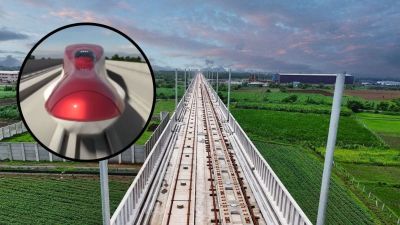Accidental candidate
It is too early to say whether Kalavati has a future in Maharashtra politics,and certainly her political interventions as...
It is too early to say whether Kalavati has a future in Maharashtra politics,and certainly her political interventions as yet give no reason to see her as a game-changing debutant. Nonetheless,her candidature has added spin to the assembly elections. Kalavati,widow of a debt-stricken Vidarbha farmer,was plucked out of her aam admi obscurity in the Lok Sabha debate on the Indo-US nuclear deal in the summer of 2008 in which the first UPA government proved its majority in the House after the Left parties withdrew support. Profiled in Rahul Gandhis much-interrupted intervention,she has since reappeared in the news with a litany of complaints about promises unkept to make her life easier. Now,she says she will make a bid for the Maharashtra assembly on a Vidarbha Jan Andolan Samiti ticket.
Kalavatis appeal for a political party is easy to gauge: name recall and her guaranteed association with the Congresss top leadership. During that Lok Sabha trust vote,Gandhis forceful and good-humoured focus on her circumstances was part of an argument to highlight the need for electricity to light up huts like Kalavatis. That spotlight ensured that overnight reporters arrived at her hut in Jalka village of Yavatmal district to get a reaction firsthand from the woman who had earlier hosted the Congress leader. Since then,Kalavatis appearances in media reports became somewhat more contested,as she listed her grievances with the system,and in turn lists of the aid and assistance she had got were put out. Now,as she makes an electoral pitch by seeking to espouse Vidarbhas farm issues,the calculators are out in an effort to see if she can split the pro- and anti-Congress vote.
But beyond their actual electoral progress,accidental politicians like Kalavati can be valuable profiles to understand key issues about political representation. She may yet prove her critics wrong that she has over-leveraged her inadvertent celebrity,if it may be so called. But,in her strikingly innocent manner of using that Lok Sabha speech to get assistance and political mileage,she shows how the system can require recommendation from above to hear out a citizen in distress. Kalavatis story,clearly,is very much a work in progress.
- 01
- 02
- 03
- 04
- 05






























